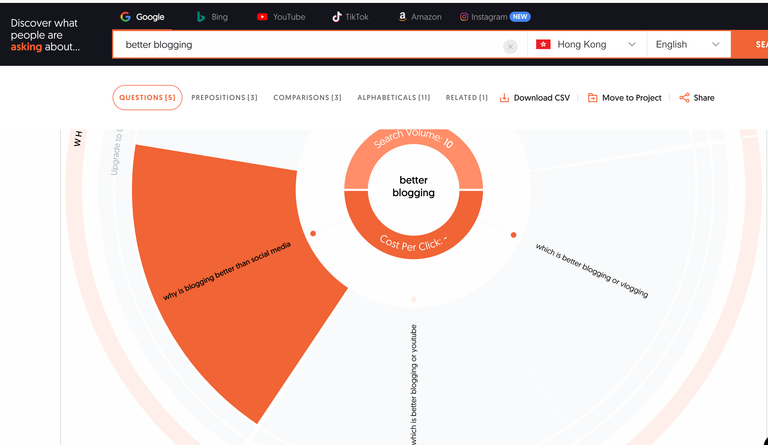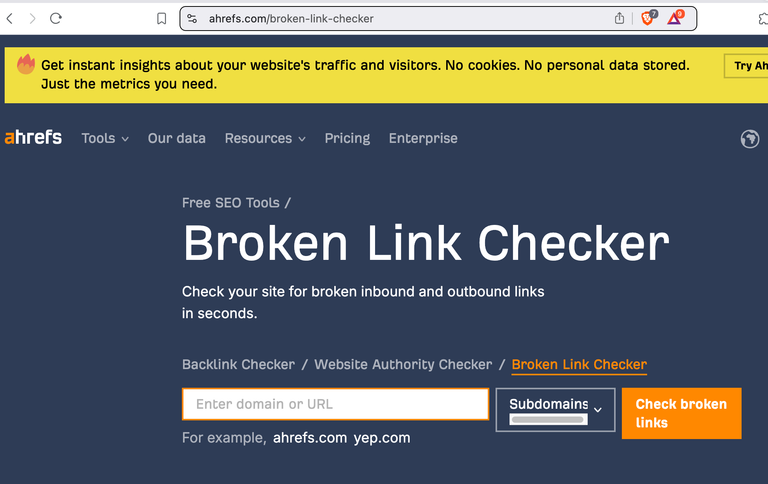Hello Crypto-Friends, hello bloggers!
Are you a seasoned blogger looking to elevate your SEO game?
You’ve mastered the basics of keyword optimization and on-page SEO, but now you’re ready for more advanced techniques to boost your blog’s visibility and authority.
Here are some advanced SEO strategies that can help you stay ahead of the competition and drive even more traffic to your blog.
- Optimize for User Intent
Understanding the intent behind your readers' search queries is crucial for creating content that satisfies their needs. There are three main types of user intent:
Informational: The user is looking for information or answers to questions.
Navigational: The user is trying to find a specific website or page.
Transactional: The user intends to make a purchase or complete a specific action.
To optimize for user intent, analyze the search results for your target keywords and see what type of content ranks highest. Tailor your content to match the intent behind those searches.
- Use Topic Clusters and Pillar Pages
Topic clusters are a great way to organize your content around core themes, making it easier for search engines to understand the breadth and depth of your expertise. Here's how to implement them:
Pillar Page: Create a comprehensive, long-form article that covers a broad topic in depth. This serves as the main hub for the topic.
Cluster Content: Write shorter, more specific articles related to the subtopics of the pillar page. Each of these articles should link back to the pillar page and vice versa.
This structure not only improves your internal linking but also signals to search engines that your blog is a valuable resource on the given topic.
- Leverage Semantic SEO
Semantic SEO focuses on the meaning and context behind search queries rather than just individual keywords. Here’s how to implement it:
Use Related Keywords and Synonyms: Instead of focusing solely on one keyword, use a variety of related terms and phrases to cover the topic comprehensively.
Answer Questions: Incorporate questions and answers within your content. Tools like AnswerThePublic can help you find common questions related to your topic.
I get curious to put: Better blogging using AnswerThePublic:

It shows:
blogging is better than social media
as highly searched.
Anyone can share your experience using AnswerThePublic?
Create Detailed Content: Write in-depth articles that cover all aspects of a topic, providing valuable information that addresses different angles and subtopics.
- Implement Schema Markup
Schema markup is a form of microdata that helps search engines understand the context of your content. By adding schema markup to your blog, you can enhance your search engine listings with rich snippets, which can improve your click-through rates. Some common types of schema for blogs include:
Article Schema: Helps search engines recognize your content as a blog post or news article.
Breadcrumb Schema: Improves navigation and helps users understand the structure of your site.
FAQ Schema: Displays a list of questions and answers directly in the search results.
- Optimize for Voice Search
With the rise of voice-activated devices, voice search is becoming increasingly important. Optimize your blog for voice search by:
Using Conversational Language: Write in a natural, conversational tone that mimics how people speak.
Answering Questions Directly: Provide concise answers to common questions within your content.
Focusing on Long-Tail Keywords: Voice searches are often longer and more specific than text searches, so target long-tail keywords that reflect this.
- Enhance User Experience (UX)
A positive user experience can significantly impact your SEO rankings. Focus on these UX elements:
Mobile Responsiveness: Ensure your blog is fully optimized for mobile devices.
Page Speed: Improve your page load times by compressing images, leveraging browser caching, and minimizing code.
Easy Navigation: Create a clear and intuitive navigation structure to help users find what they’re looking for quickly.
- Build High-Quality Backlinks
While you may already be familiar with link building, focus on acquiring high-quality backlinks from authoritative sites. Some advanced strategies include:
Guest Posting: Write guest posts for reputable blogs in your niche.
Broken Link Building: Find broken links on other websites and suggest your content as a replacement.
You can check it using Broken link Checker:

Content Promotion: Use social media, email outreach, and influencer marketing to promote your content and attract natural backlinks.
Conclusion
By implementing these advanced SEO strategies, you can take your blog to the next level and attract even more readers. Remember, SEO is an ongoing process that requires continuous learning and adaptation. Stay updated with the latest trends and algorithm changes to maintain your competitive edge. Happy blogging!
Posted Using InLeo Alpha